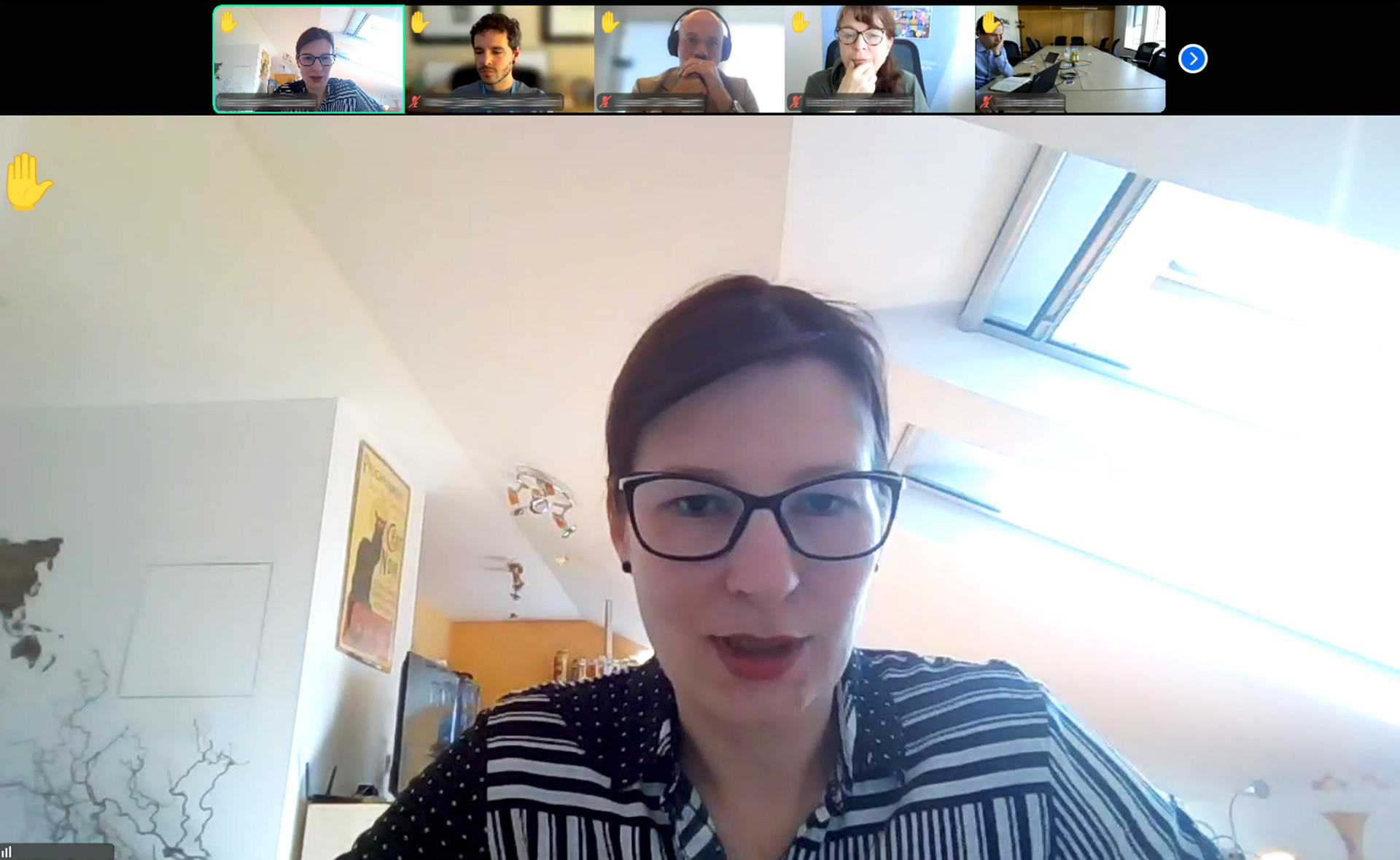 On 29 April 2025, representatives of 38 Member States in the WHO European Region met online to provide feedback on the first draft of the second European Programme of Work (EPW2), a strategic and operational framework that will guide countries’ and WHO/Europe’s work on health from 2026 to 2030.
On 29 April 2025, representatives of 38 Member States in the WHO European Region met online to provide feedback on the first draft of the second European Programme of Work (EPW2), a strategic and operational framework that will guide countries’ and WHO/Europe’s work on health from 2026 to 2030.
At this fourth meeting, EPW2 focal points and national counterparts expressed their appreciation for the consultative process underway to develop the framework and for the structure and approach outlined in the document.
Participants underlined their support for the special initiatives on primary health care and strengthening the health system response to violence against women and girls, emphasizing national commitments in these areas. Several focal points also praised the cross-cutting approach to primary health care set out in the EPW2 to support other functions.
Other reflections included the need to place greater emphasis on social participation and intersectoral collaboration, in addition to the foundational public health actions of rebuilding trust in science, leadership and strategic partnerships, and leveraging innovation, already articulated in the draft. There was also a general request to emphasize the potential of leveraging existing country capacities.
Together with written inputs from Member States, this feedback with be incorporated into the next version of the EPW2 document for consultation over the summer.
A final version of the EPW2 will be put to Member States for adoption at the 75 th session of the WHO Regional Committee for Europe, to be held on 28–30 October 2025.
Priority areas in EPW2
At the meeting on 29 April, WHO/Europe’s senior management briefly explained how WHO/Europe will work across 5 priority areas.
Ihor Perehinets, WHO/Europe’s Regional Emergency Director, outlined the multi-hazard approach to emergencies and how WHO works closely with governments to tackle health security at both an individual and societal level, stressing the importance of partnerships with the European Union and the Eastern Partnership as well as Member States.
Allison Ekberg, from the Special Initiative on Noncommunicable Diseases (NCDs) and Innovation, gave an overview of the efforts being made to prevent the 1.8 million avoidable deaths attributed to NCDs in the WHO European Region, including supporting countries to develop NCD reduction strategies and reduce preventable mortality.
Robb Butler, Director of the Division of Communicable Diseases, Environment and Health, outlined WHO/Europe’s focus on strengthening climate resilience in health systems, placing health at the heart of climate policy and implementing the commitments of the Budapest Declaration through the new Pan-European Commission on Climate and Health.
Natasha Azzopardi Muscat, Director of the Division of Country Health Policies and Systems, focused on the importance of improving health and well-being for both children and older people. Recognizing that the Region’s ageing population is a public health success to be celebrated, Dr Muscat also highlighted the challenges this brings, including the need to ensure that health systems are future-proofed, utilize new technologies where appropriate and are accessible and affordable for all.
About EPW2
EPW2 is a strategic and operational framework providing a vision for health and well-being in the Region. It includes a set of collective actions for country-led progress as well as specific prioritized actions for WHO/Europe to support Member States, and institutional changes that WHO/Europe will make to deliver the EPW2 effectively. The EPW2 translates WHO’s Fourteenth General Programme of Work (2025–2028) into concrete actions for the Region.
Through targeted action in 5 interconnected areas from 2026–2030 – maximizing health security, tackling NCDs, living and ageing in good physical and mental health, and driving climate action and health systems of the future – it is anticipated that the framework will set the Region on track to manage the broad trends affecting health for decades to come.
Building on the first European Programme of Work 2020–2025, Member States indicated that they would like the EPW2 to be developed through broad consultation and co-owned by countries and WHO/Europe.
To ensure that the framework adequately serves the diverse needs of the 53 countries in the Region, focal points have been appointed by Member States to represent their national health perspectives and priorities and make sure that the EPW2 is a truly collaborative process.




